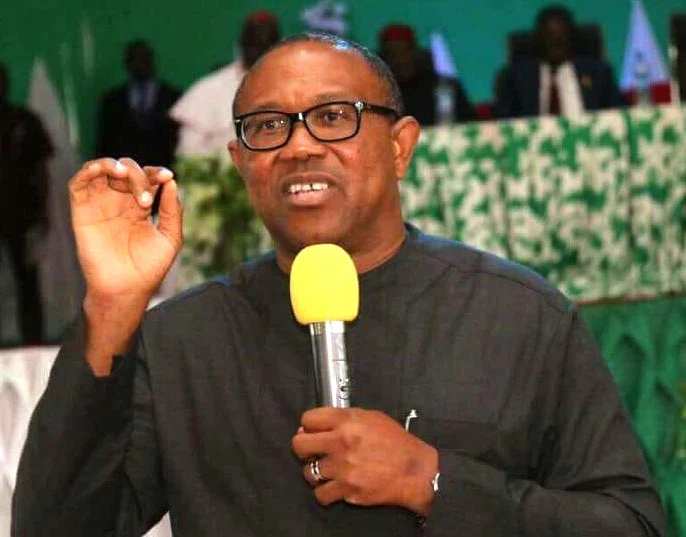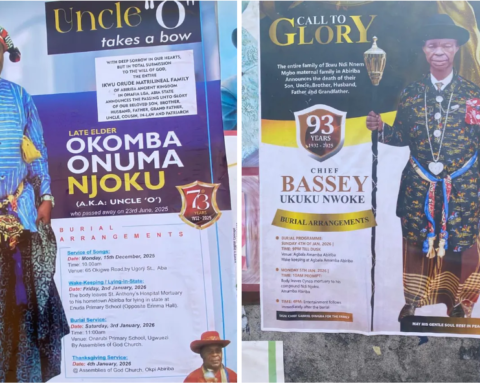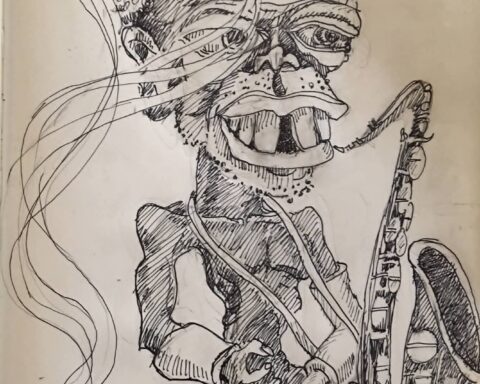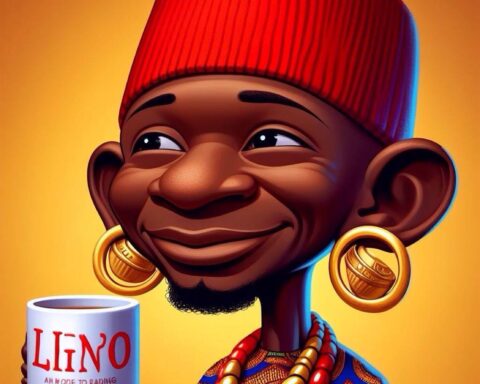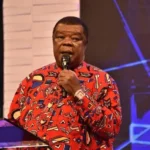By Victor Anazonwu
There’s a curious new profession in Nigeria today let’s call it Obi-dissing. It’s a full-time job built on criticizing and discrediting Peter Obi, the former Anambra State governor and 2023 presidential candidate. The leading pioneer of this craft is Reno Omokri, a spooky online commentator based abroad, who appears to have carved out a lucrative niche for himself as Obi’s most relentless antagonist.

But Omokri is no longer alone. As the 2027 elections loom and Obi refuses to be silenced, Nigeria’s political establishment is uniting in horror around a singular, urgent task: to stop Peter Obi.
Why is one man without control of a major political party, without a vast war chest, without the machinery of state seen as such a threat?
Because Peter Obi has become a one-man opposition force. While other opposition politicians have run out of steam or been co-opted into the ruling circle, Obi remains visibly active, consistently calling out government failings and articulating a vision of governance rooted in transparency, production, and personal sacrifice. In a political climate defined by patronage and opacity, his message is jarring and dangerous to the status quo.
The ruling All Progressives Congress (APC) sees it clearly. So do many within the opposition. To them, Peter Obi isn’t just a political rival; he’s an existential threat. A purist in an age of pragmatists, Obi promises not just to change policy, but to uproot an entire political culture. If he gets into Aso Rock, Nigeria’s seat of power, the fear is that decades of entrenched privilege, corruption, and cronyism could unravel.
Take a recent example. Obi declared that, if elected president in 2027, he would serve only one term of four years enough, he said, to reset Nigeria’s trajectory through clear policies and the force of personal example. His rationale? Nigeria doesn’t need lifelong rulers; it needs transformative leadership.
He also acknowledged the country’s unwritten agreement that presidential power should rotate between North and South in eight-year cycles. With current President Bola Tinubu, a southerner, already two years into his term, Obi also from the South risks disrupting this delicate geopolitical balancing act. But by proposing a single-term presidency, he hoped to soften those concerns.
Obi’s statement was met with swift and vitriolic pushback. Critics within and outside the ruling party dismissed the idea. The most cutting response came from Anambra State Governor Charles Soludo a fellow Igbo and former ally who described the proposal as so ridiculous that its proponent “needs psychiatric evaluation.” Soludo, it turns out, has his own presidential ambitions and likely views Obi’s rising popularity as a direct threat.
Elsewhere, Obi would be celebrated for offering to do a better job in less time. He would be put to task and held to his word. It would be a way of raising standards for the benefit of all. But this is Nigeria where people who spend 8 years on the job and fail are considered “normal.” Where those who refuse corruption are considered “insane.” Where improving society is not the objective of governance.
This is the paradox: Peter Obi threatens not just the ruling party but ambitious politicians across the spectrum, including those who share his ethnicity, region, religion or even ideology. Nigeria’s political elite North and South, APC and opposition have found rare unity in their mission to neutralize him. Their livelihood depends on it.
Among the ranks of those who have publicly attacked Obi are Nyesom Wike, Minister of the Federal Capital Territory; Dave Umahi, Minister of Works; Daniel Bwala, a presidential adviser; and a long line of political surrogates and influencers hired to do the job. Their message is consistent: Peter Obi must be stopped.
To understand why, one must grasp what Peter Obi represents. He is, for many Nigerians especially the young and disillusioned a symbol of hope, accountability, and moral clarity. He travels economy class. He publishes details of his expenditures. He speaks often of production over consumption and insists on fiscal prudence in a country awash in waste.
These are not just talking points. They are revolutionary ideas in a country where the political class lives in obscene luxury while millions struggle to survive. Obi is not just campaigning for office; he is indicting a system.
According to Fulton J. Sheen (Walk with God), “As an individual descends the moral ladder into decay, he will always seek that level which will give to his dishonesty or his mugging or his immorality a stamp of approval, and thus ease his conscience.”
No wonder Obi is considered a “terrorist” not in the literal sense, of course, but in how he unsettles Nigeria’s ruling establishment. He pricks their conscience. He is the ghost at their feast, the inconvenient truth they would rather not confront. He walks without security convoys, speaks without pretense, and insists that leadership should be a service, not a reward.
And that is precisely what makes him dangerous.
Peter Obi’s greatest weapon is not money or machinery it is moral courage and ideological clarity. In a nation long battered by cynical politics and broken promises, those are rare commodities. And for the many who benefit from business as usual, they are also deeply threatening.
Whether Obi can translate that moral clarity into electoral victory in 2027 remains to be seen. But one thing is already certain: he has changed the conversation. And for Nigeria’s political class, that alone is terrifying.
Victor Anazonwu is a commentator and author with a focus on values, governance and development. He writes from Lagos.
Follow us on all social media platforms @dailyquery for news and analyses around the globe.
